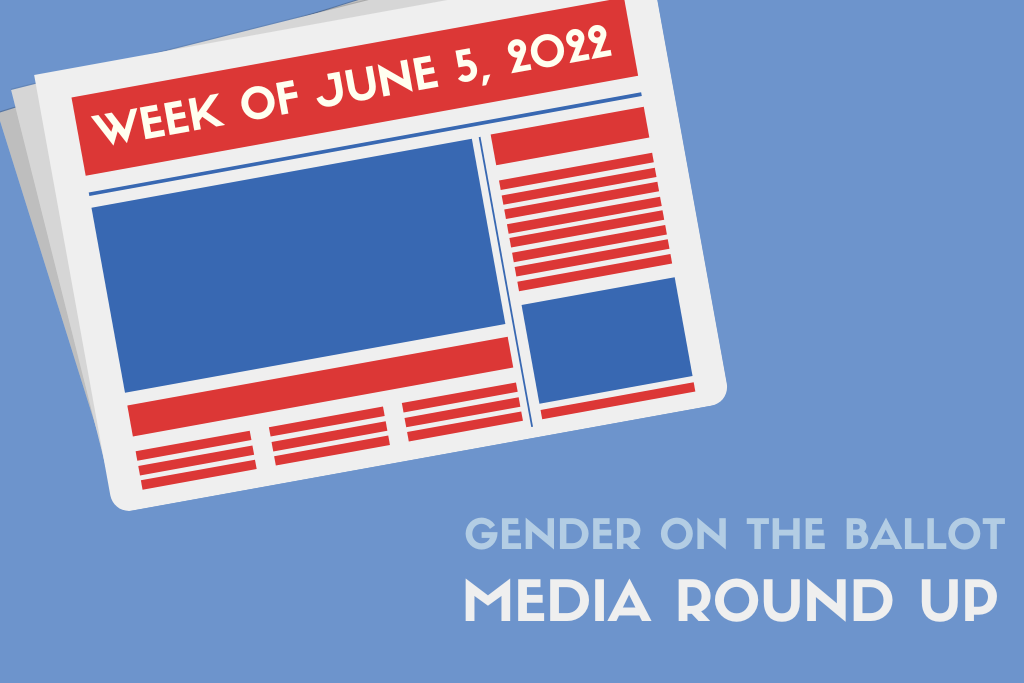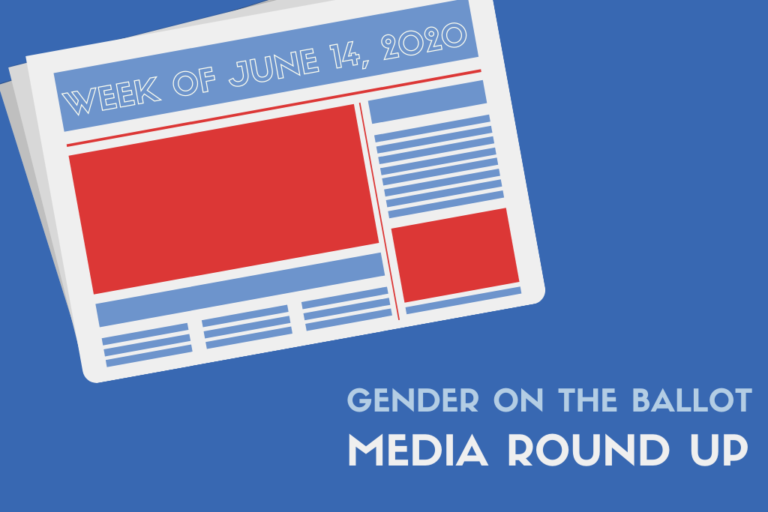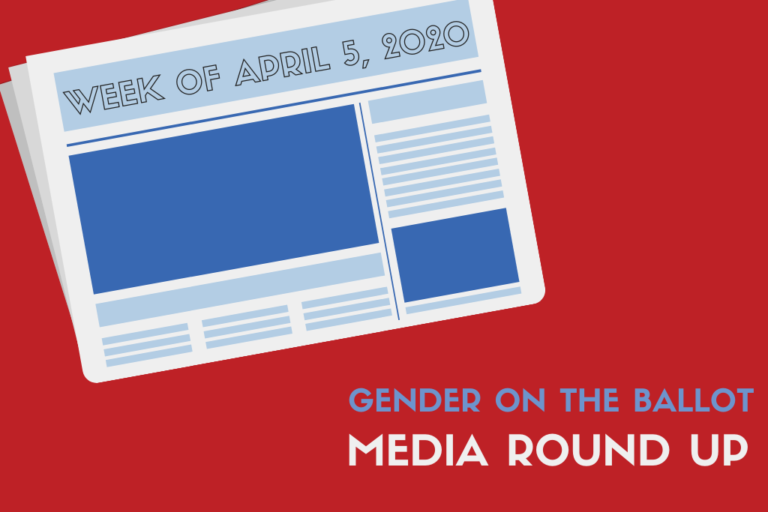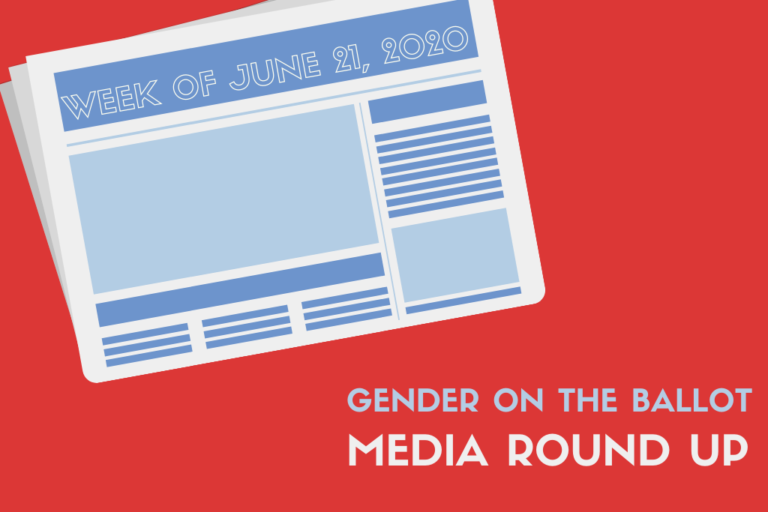Happy Friday! Welcome to our Media Round Up. Each week we’re collecting and sharing our…
Media Round-Up: Week of June 5th

Happy Friday! Welcome to our Media Round Up. Each week we’re collecting and sharing our favorite gender + politics stories. Here’s what caught our eye this week:
More women than ever own guns. Could that change gun laws?
Anne Branigin, Washington Post
Gun control debates have once again stirred up in the United States due to the country’s recent string of high-profile mass shootings. Traditionally, men have dominated the debate over gun control in the United States; however, women may soon have the power to control the conversation. A recent poll from CBS News-YouGov found that 60% of women said that they supported stricter gun laws, compared to 46% of men. Jennifer Carlson, an associate professor at the University of Arizona whose research focuses on the impact of guns on American life, speculated that as more women become gun owners, it will continue to have animpact on what gun rights in America look like.
Read the full story here.
Quarters Have a New Face: Feminist Cherokee Chief Wilma Mankiller
Anusha Bayya, The Story Exchange
Cherokee Chief Wilma Mankiller is the face of the latest installment of the U.S. Mint’s American Women Quarters Program, “… a four-year initiative that celebrates an array of diverse women in the country’s history.” Mankiller was born and raised in Oklahoma, entering politics as the running mate of the tribal chief in 1988. During her run for deputy chief of the Cherokee Nation, Mankiller received a barrage of death threats and sexist mail. After serving as deputy chief of the Cherokee Nation for two years, Mankiller was elected to the principal chief’s chair with 83% of the vote, becoming the first woman in the position.
Read the full story here.
Meet the Asian American women working to diversify the ballot
Belle Lin, Insider
According to data from the Center for American Women and Politics at Rutgers University (CAWP), Asian American Native Hawaiian/Pacific Islander identifying women make up only 77 out of the nation’s 7,383 state legislators. Within the AANHPI community, Asian American women hold elected office at lower rates than Asian American men. Although the reasons for such drastic under-representation vary, political experts say that the disparities can often be attributed to existing power structures that favor men and male candidates of color. Many Asian American women are hoping to increase their visibility in politics by running for elected offices at all levels across the nation during this year’s midterm elections.
Read the full story here.
Digital violence is the number one barrier to women participating in public life. Here’s how to start fixing it.
Nick Fouriezos, New Atlanticist
Research from the National Democratic Institute says that across the world, the number one hindrance to women entering politics is the threat of digital violence. The research also stated that only 16% of women in politics reported that they received a timely and effective response to the growing threat of digital violence. Some of the potential solutions discussed in the research document include: regulation of threats of violence on social media via third-party tool integration and opening up platforms to allow developers to enable their own solutions.
Read the full story here.
‘I’m so much stronger now’: How remote work is helping women in the workplace
Katie Johnston, Boston Globe
The normalization of remote work has proved very beneficial for many women. In the past when making a significant career move, because women tend to have more domestic duties than men, they had to consider things like uprooting their families, spending more time at the office and/or making frequent business trips. Now that there’s more flexibility with remote work, many of those concerns are beginning to fade. According to Deloitte, one in four leadership roles at large global tech companies is expected to be held by women this year.
Read the full story here.







